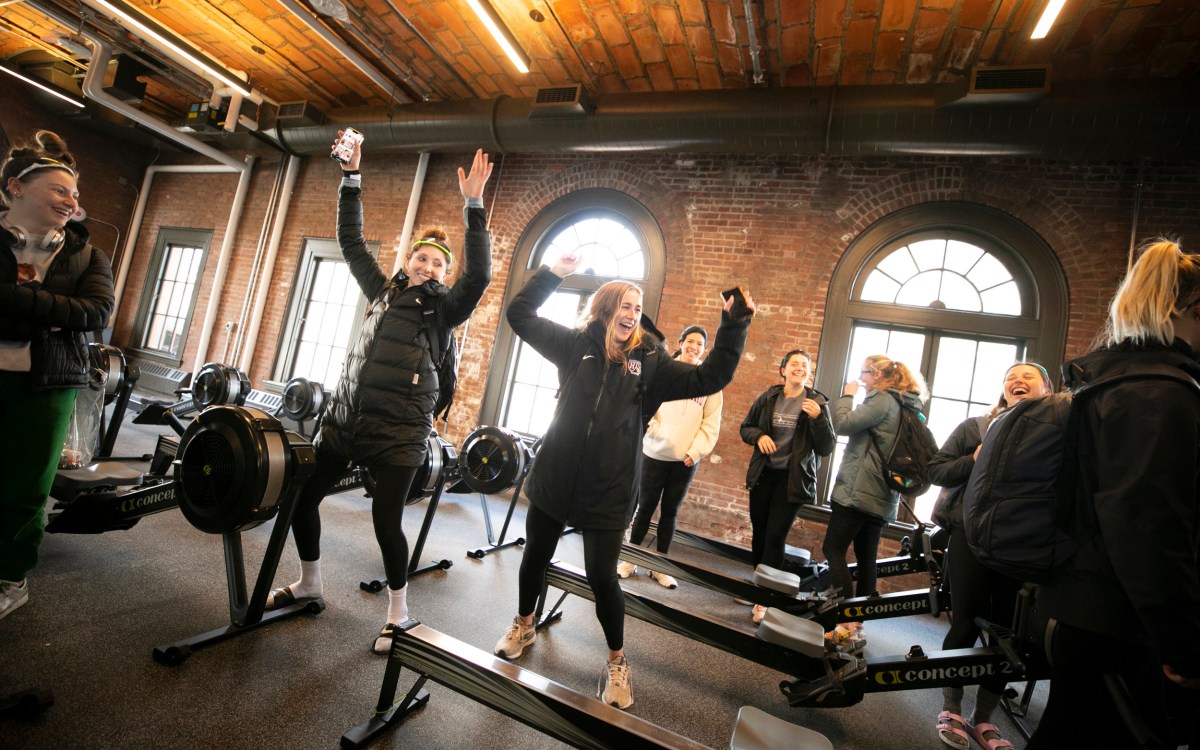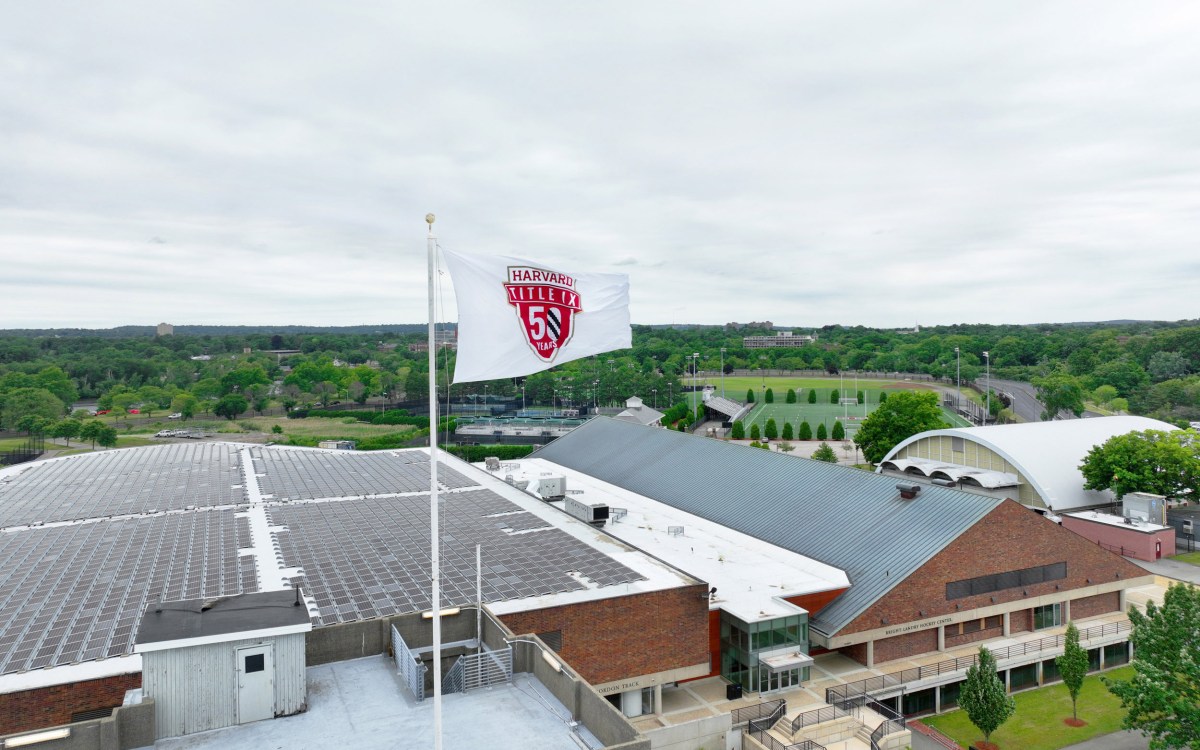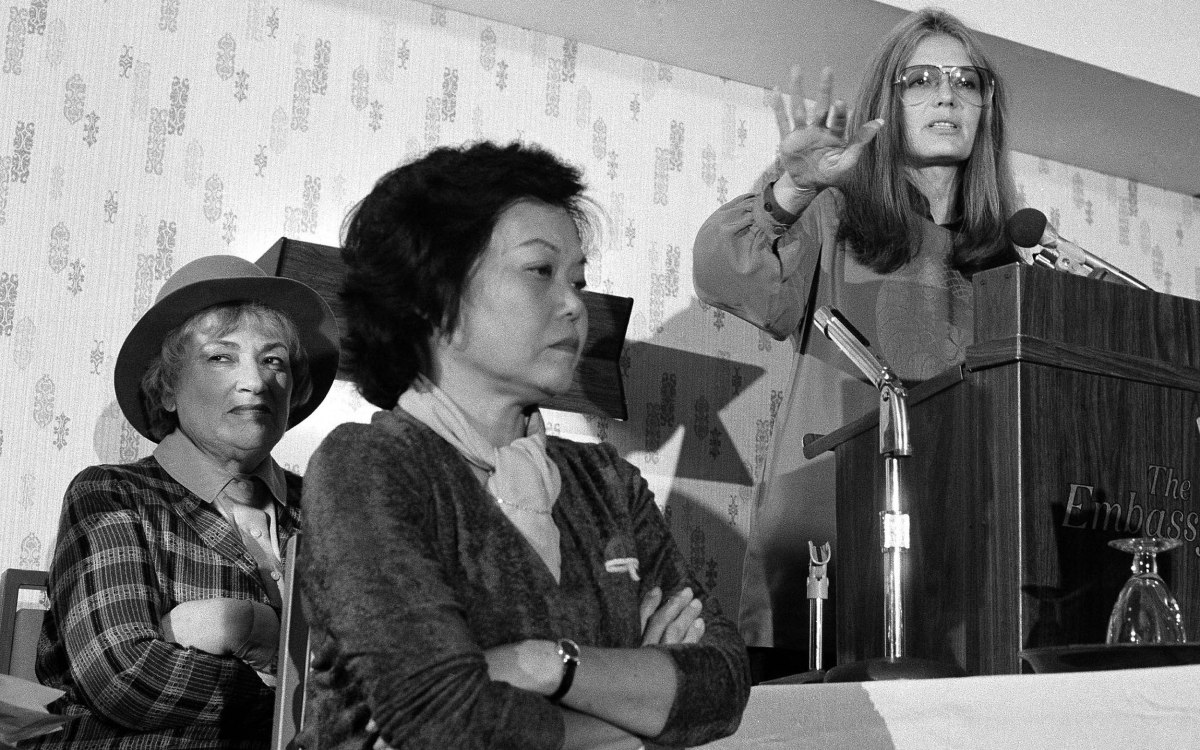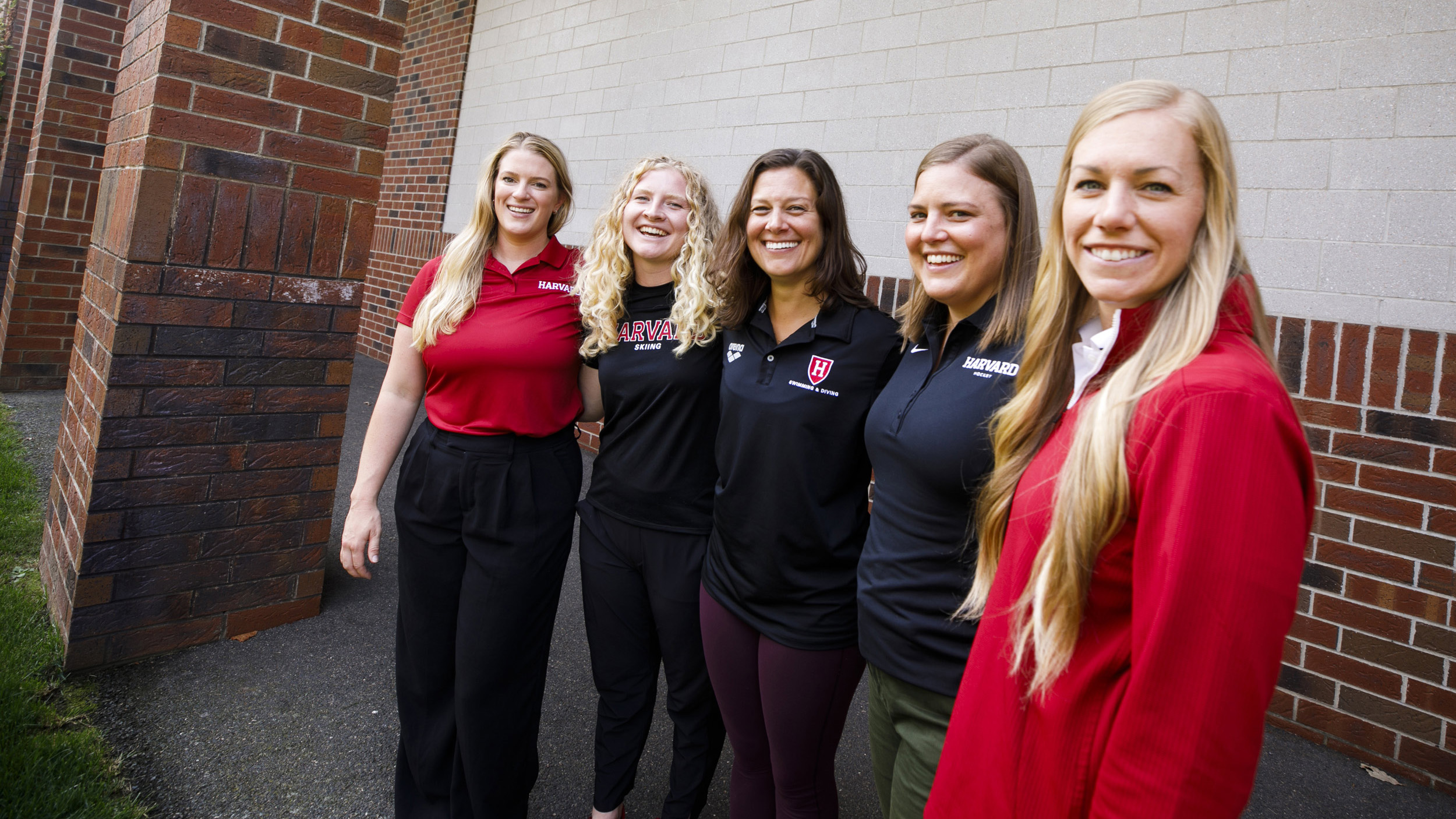
New coaches leading Crimson teams this year: Claire Ochal (crew) (from left), Sam Benzing (Nordic skiing), Amanda Kulik (swimming and diving), Laura Bellamy (ice hockey), and Jenny Rohn (softball).
Stephanie Mitchell/Harvard Staff Photographer
5 new women coaches on sports as spark for change
‘We’re really here to help these student athletes grow to be their best selves’
This semester Harvard welcomed five new women coaches to lead crew, swimming and diving, Nordic skiing, ice hockey, and softball. The five women got together earlier this month in between meetings at the Murr Center to discuss their paths to Harvard, coaching philosophies and goals, issues facing women athletes today, Title IX’s legacy, and sports as a catalyst for social change.
Coaching through a teaching lens

Niles Singer/Harvard Staff Photographer
Amanda Kulik
Costin Family Head Coach for Harvard Women’s Swimming and Diving
“I’ve always approached coaching from a teaching lens,” said Kulik, who has coached here in various roles since 2013. “It’s thinking of it like a curriculum: What do we want at the end? … We’re really here to bring joy, to help these student athletes discover, learn, and grow to be their best selves, not just here at Harvard, but into the next phase of life.”
About Title IX, she said, “I think a lot about my mom,” a physical education instructor. “I want to honor her efforts and keep the legacy of women’s leadership in sports moving forward.”
This is particularly relevant, she said, as young people face issues of racial justice, climate change, and mental health in a world still recovering from the pandemic. “Sport is a place where social change can start.”
Change may be slow, but ‘it’s coming’
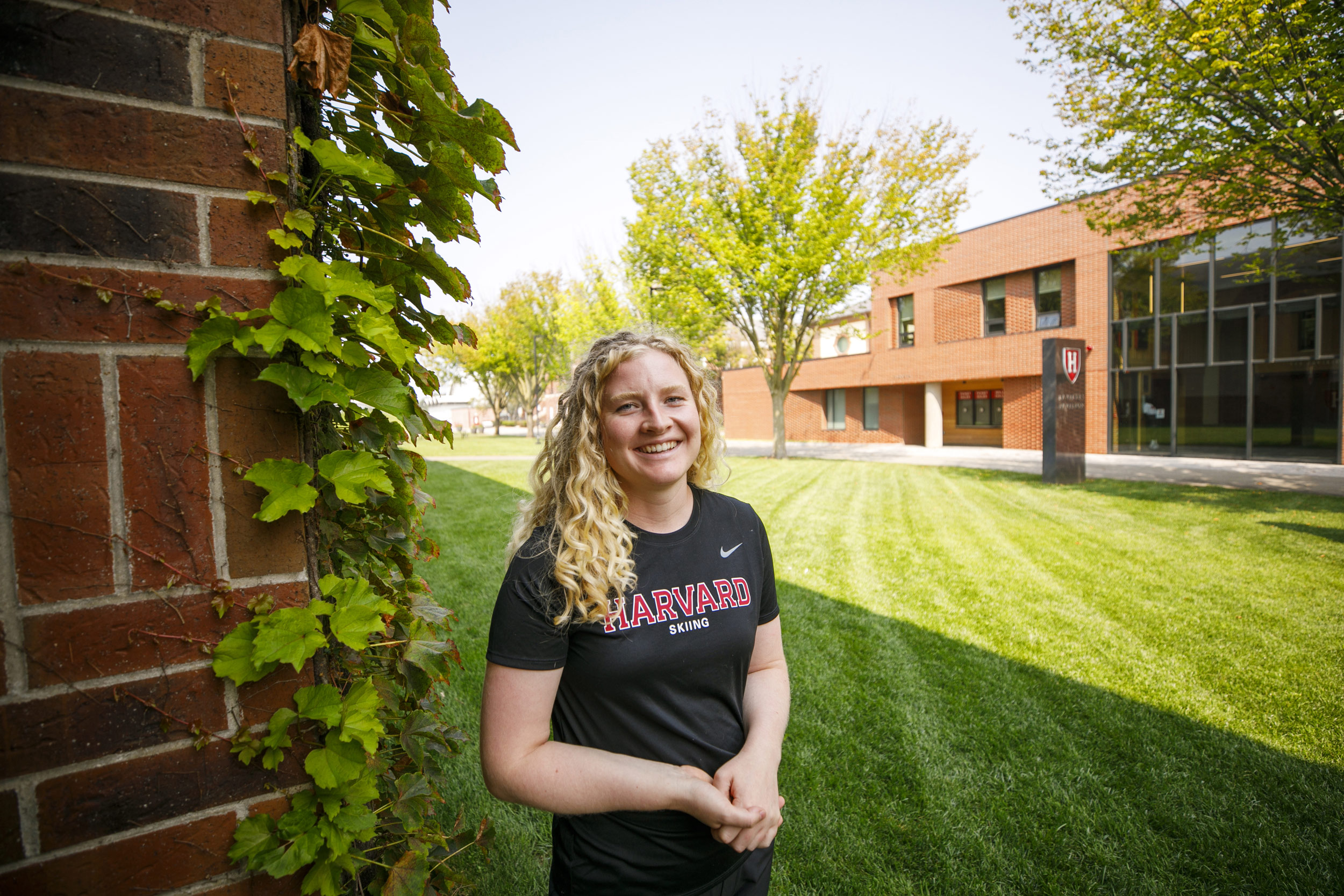
Stephanie Mitchell/Harvard Staff Photographer
Sam Benzing
Paul J. Finnegan Family Head Coach for Nordic Skiing
Benzing described her coaching approach as holistic — “looking at both the physical and mental aspect of well-being and performance.”
The Idaho native got an in-depth look at the issues facing women — and the importance of mentoring — while skiing at the College of St. Scholastica in Duluth, Minnesota. Her coach connected her with the Tucker Center for Research on Girls & Women in Sport, where she completed a gender equity internship followed by a Tara VanDerveer Fellowship through the Women’s Sports Foundation. Now, with assistant coach Hannah Halvorsen, she has the only all-women Nordic ski staff in the NCAA at the Division I level.
Title IX, Benzing noted, had some unexpected consequences, including a decrease in the number of women coaches after its passage. “We had an expansion of athletic opportunities for women, and male coaches filled the coaching roles. We are still dealing with the effects of that today,” she said.
Change may be slow, but “it’s coming,” she stressed, citing research showing a 2 percent increase in women head coaches at select Division I institutions over the past two years.
Resilient and curious players

Stephanie Mitchell/Harvard Staff Photographer
Laura Bellamy ’13
Landry Family Head Coach for Women’s Ice Hockey
Today’s student-athletes “are so much more informed than we were, which causes them to ask really good questions,” said Bellamy. “They are really tough and resilient, and they can handle feedback, but they require communication.”
Bellamy is not only an alumna, she is one of the best hockey goaltenders in the women’s team’s 45-year history. That experience forms the foundation of what she hopes to instill in her student-athletes.
“It would be great if we can have professional women’s hockey players come out of Harvard and I think we will,” said Bellamy. “But then what’s next for them? I want to help them figure that out while they’re here.”
Stretching comfort zones
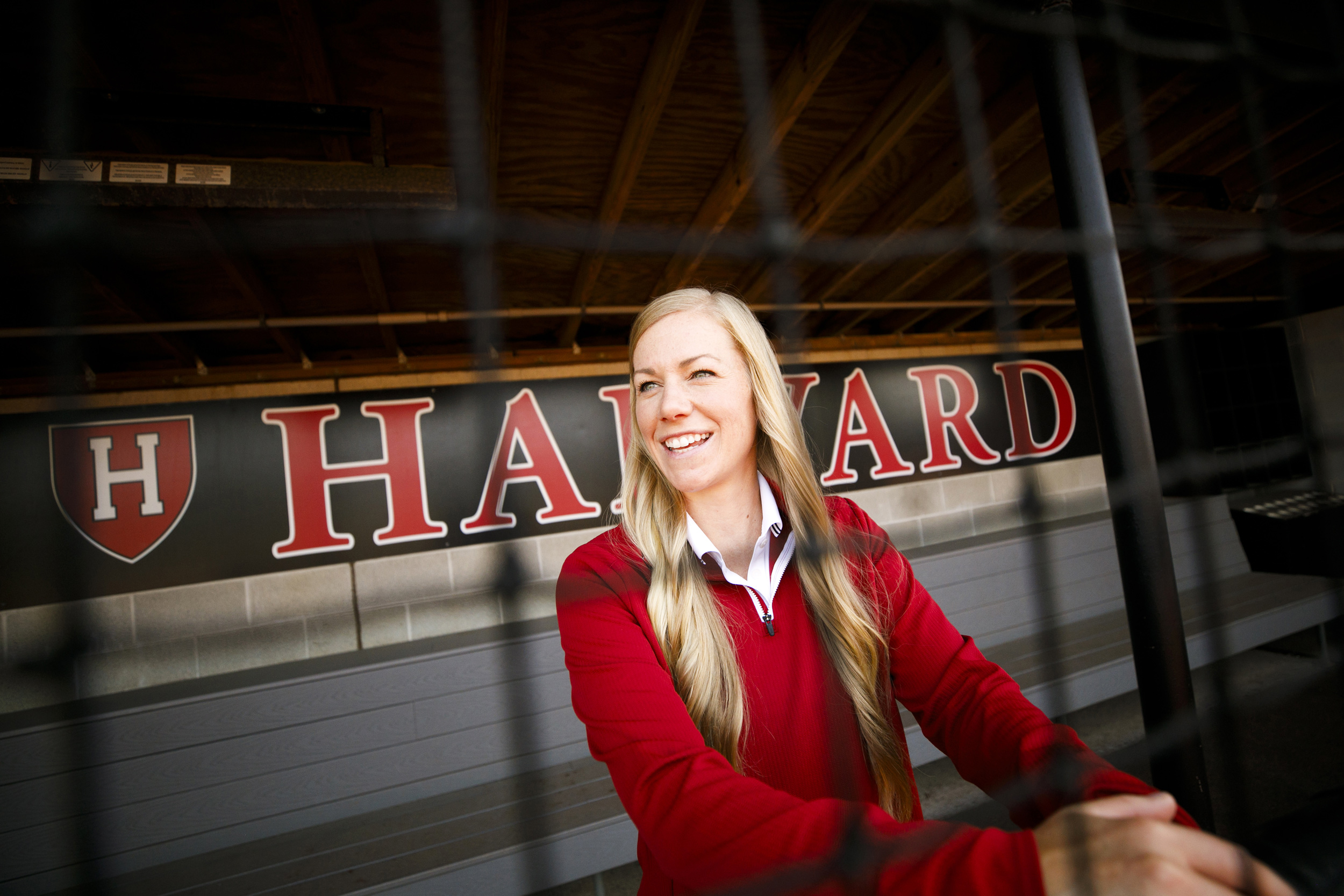
Stephanie Mitchell/Harvard Staff Photographer
Jenny Rohn
Harvard softball head coach
“Harvard students, in general, always want to know why,” said Rohn. For her, that means “breaking down our coaching to really have an answer for why we’re doing what we’re doing.”
“They’re very curious about how this is going to help, and maybe a little cautious about stepping outside of their comfort zone. But we encourage them to. When you step outside your comfort zone, that’s when you’re going to grow and that’s when you’re going to become a better version of yourself.”
Rohn began as a volunteer assistant during the 2016 season, moving up to second assistant two years later, and then lead assistant coach in 2021. “I actually owned every single role in the Harvard softball program,” said Rohn. After a brief return to her alma mater, Western Michigan, she answered Harvard’s call. “The model of developing student athletes here is exactly what I’m passionate about and what I live to do.”
Standing tall and proud
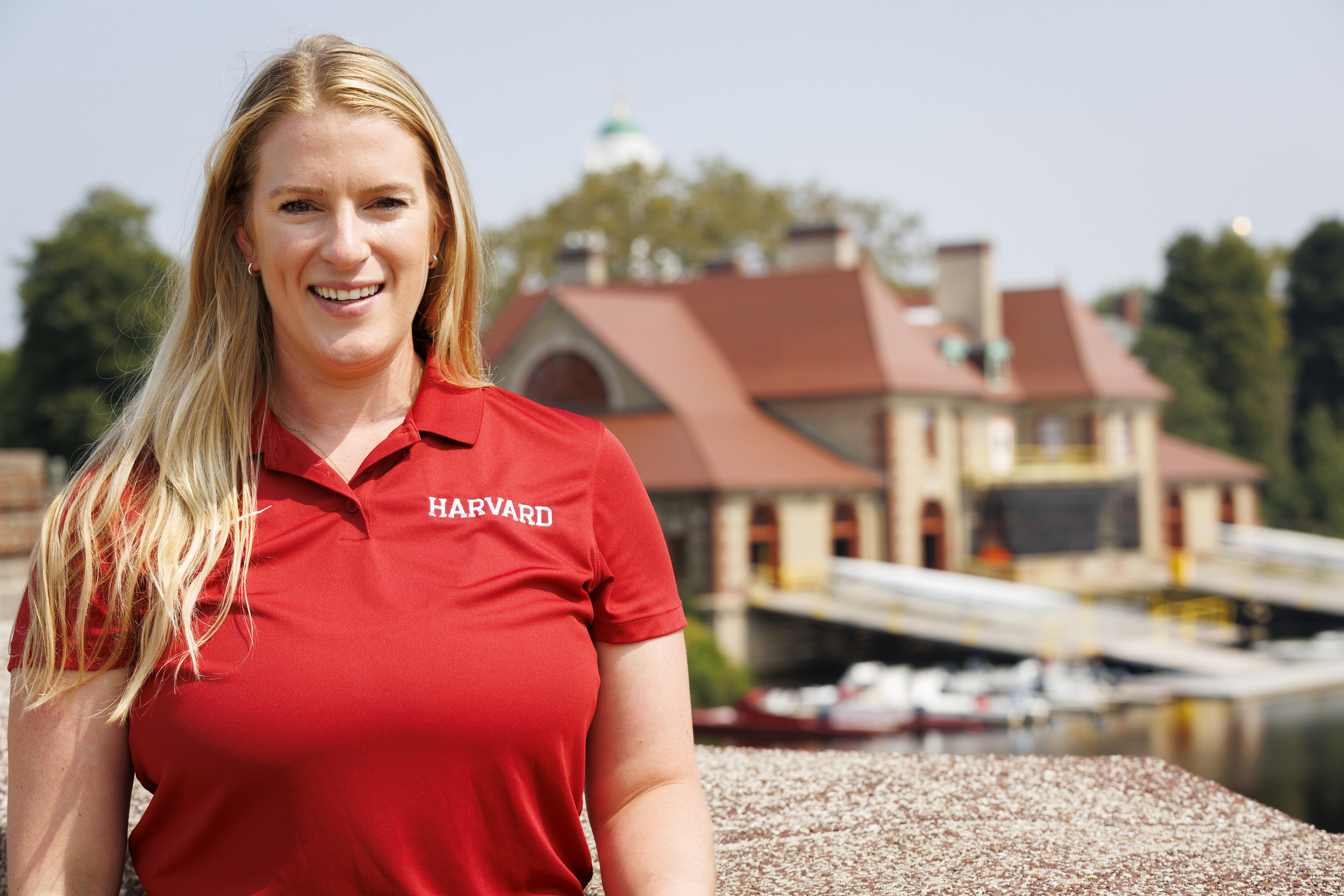
Stephanie Mitchell/Harvard Staff Photographer
Claire Ochal
The Friends of Radcliffe Rowing Head Coach for Women’s Heavyweight Crew
Ochal, a native of North Reading, Massachusetts, fell in love with her sport in college, rowing on the Charles River for Boston University before beginning her own coaching career at Wayland-Weston High School. She then spent five years building Syracuse University’s team as associate head coach and recruiting coordinator.
As “the tallest one of my friends,” the coach looks forward to “working with women and helping them to be strong, empowered, and confident — and to not shy away from being the tallest person in the room.”



